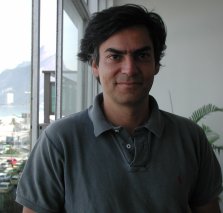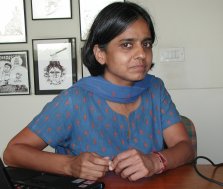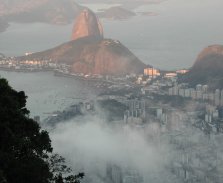

House of Sound
BRICS Programme Four






House of Sound
BRICS: The Rise of Brazil, Russia, India and China
Programme Four: What Could Go Wrong
At Maternity Hospital 11 in the Moscow suburbs, chief obstetrician Tatiana Fedotor (left) proudly holds up Russia's newest citizen. The infant faces an uncertain future: Russians are dying younger and breeding less. Russia's Security Council fears the population will fall by one third, to about 100 million, by 2050. But Dr. Fedotor is confident her country's famously sagging birth rate is turning around -- not because Russians necessarily believe economists' prophecies of prosperity: this is Russia, remember, where the deepest fear is not poverty ... but anarchy. More important than prosperity, Dr. Fedotor says, is stability. And stability is returning to Russia, she says: "I saw eyes of our ladies in labour: hopeful in eyes."
There's optimism galore in the packed cafes and nightclubs of post-Soviet Russia, among those young enough and educated enough to share in the bounty that international investment has brought. But beneath the surface smiles, some deeply Russian gloom: Grigory Yavlinsky, now head of the liberal Yabloko Party, was one of the reformers who tried to ease the Soviet Union's transition from communism to capitalism. Russia will not be able to claim a place at the top table, he says, until it achieves enforceable property rights, transparency on human rights, freedom of expression and a coherent development strategy. Andrei Nechaev, a former Minister of the Economy and now president of the Russian Financial Corporation, the foreign investment arm of the Russian State Bank, says Russia has always relied on her rich energy and mineral resources. "But now we live in the 21st century, and it's not so important to have these resources," he says. "Much more important is to have the money to buy them."
A different continent, the same dilemma: in an airy flat overlooking the famous beach at Ipenema in Rio de Janeiro, columnist Diogo Mainardi (below, left) regularly infuriates his fellow Brazilians with his contention that Brazil is a "banana republic," with a bloated government bureaucracy which hampers entrepeneurship and fails to solve Brazil's massive social problems. He is deeply skeptical of Brazil's place in the BRICs predictions.
"Of course, what you actually have, when you look at the BRICs thesis," presenter Peter Day says, "is two great producing countries [China and India], and two great raw material countries [Russia and Brazil] supplying the producing countries ... Russia might drop out of the BRICs thesis, as well. So we're left with .. um ... 'ICs,' aren't we?"
Across town, Candido Grzybowski doubts the BRICs promise, too. A founder of the World Social Forum, Grzybowski believes China's growth is unsustainable; Russia, unlikely to regain its status as a great power; India, beset with problems. As for Brazil, "If you look to our exports, it is mainly nature we are exporting," he says. "We are exporting our future instead of building our future -- and this is not sustainable."
Indeed, Nature still has the power to derail human plans. The influential environmental campaigner, Lester Brown, president of the Earth Policy Institute, argues that growth in at least three of the four BRICs countries could be derailed by environmental crisis: China, he says, is already facing a tightening water supply. In Delhi, the acclaimed water campaigner Sunita Narain (below, left) says water shortages are already causing social unrest in parts of rural India: "You have water today becoming one of your biggest limiting factors when it comes to industrial growth." Yes it needn't be so, Narain says. "We have to be very ingenious in our solutions -- and we have to understand there is nobody in the world who can teach us better than our own mistakes."
The BRICs countries make up half the world's population. And if the economists are right, then the growth of these economies will transform the appetites of three billion people. Many millions at least will all want hamburgers and mouth wash and television sets and automobiles... with hugely increased demands for energy and raw materials.
Even Jim O'Neill, the father of the BRICs thesis, acknowledges that "stories of blackouts around the world and enormous periods of pressure on commodities prices will be particularly prevalent over the next fifteen years. And, indeed, it might be that some of the security issues actually get escalated because of competing interests in search of energy. And I think it will be a particular challenge, perhaps between the US and China in sensitive areas of the Middle East and Africa and maybe Russia, itself." But from 2040 onwards, O'Neill says, "It looks like a wonderfully prosperous world."
Chatting with the columnist Diogo Mainardi, Peter Day muses that, if the BRICs predictions come true, "Other countries might have to move over. I don't know how comfortable that would be for Europe, say, which might disappear very much from the top table. Or America moving over and being challenged by the other engines of China and India... It's going to be an uncomfortable 50 years, isn't it?"
"Only for you," Mainardi replies. "You have something to lose. We don't have much to lose, so it will be less uncomfortable."